Patreon MUSICARTA Premium
Scale Practice Patterns
~ SPP 24-09 ~
Scale practice patterns (SPPs) offer a creative way to play and practice scales.
Scale Practice Pattern 24-09 ('SPP 24-09' - numbered by date of creation for simplicity) has been developed to encourage this independent, forward-looking ethos.
SPP 24-09
The SPP 24-09 module invites you to play your scales - major, and melodic and harmonic minors - according to this 'contour'.
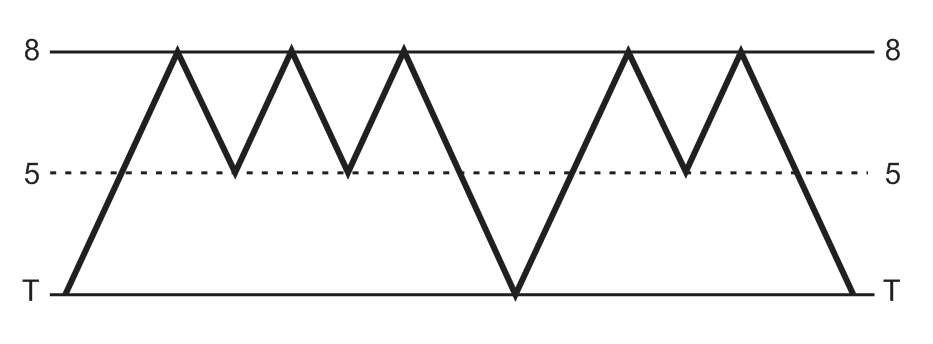
You will recognise this pitch-shape ('contour') in the following performance, which runs through (in C) the whole selection of scales used:
- Major, in unison;
- Major, in tenths;
- Major, in sixths;
- Melodic minor, unison
- Melodic minor, pattern inverted;
- Harmonic minor, in unison;
- Harmonic minor, in tenths;
- Harmonic minor, in sixths.
(The melodic minor doesn't 'work' in tenths and sixths, so the inverted pattern is offered instead.)
Watch the video straight through (sections follow), paying particular attention to the contour diagram animation.
About the pattern
The pattern is designed to rehearse the 'proper' scale fingering in Fingering Group One scales, particularly of the fifth-up-to-the-octave, coincidentally the changing notes in the melodic and harmonic minor scales.
The '5' in the contour diagram is nominal halfway-up or halfway-down the octave, in practice, either the fifth or the fourth, being either four notes down from, or four notes up from, the tonic/octave.
Playing in tenths and sixths
Playing the scales in tenths and sixths is not nearly as difficult as is imagined.
While, generally, it is useful to use the 'proper' scale fingering (and this is demanded in exams), in C, with its all-white keys, the regular tonic-to-tonic scale fingering can be used in both hands in both combinations to produce these harmonious effects.
The learner is encouraged to do this, just to enjoy producing the musical effect. Matters become more difficult when the scales acquire accidentals (black keys) - but that's not yet!
The sections
Now, for your practicing convenience, here are the three sections.
Major
You will see the pattern played in C major:
- first in unison (both hands C to C);
- then in tenths (LH C to C, RH E to E);
- then in sixths (RH C to C, LH E to E).
As mentioned before, you can ignore the 'proper' scale fingering and play the tenths and sixths with both hands using the simple tonic-to-tonic C major Fingering Group One fingering.
Melodic minor
The melodic minor doesn't 'work' in tenths and sixths, so instead, you are given the pattern inverted to use.
 'Right way up' 'Right way up' |
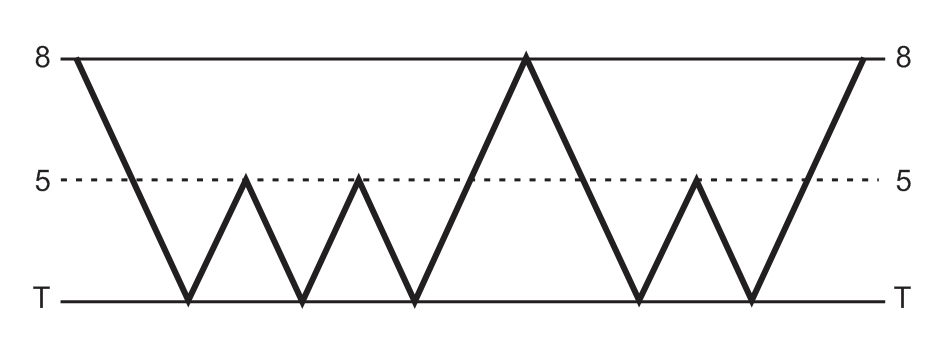 Inverted Inverted |
Once 'accidentals' (black keys) appear in your scales, sticking strictly to the 'proper' scale fingering is the only way to avoid bumbling around in perpetuity. Grasp the nettle! A little drudgery now will repay you handsomely down the line.
Harmonic minor
You will see the 'right way up' pattern (only) played
- in unison (both hands C to C);
- in tenths (LH C to C, RH E flat to E flat); and
- in sixths (RH C to C, LH E flat to E flat).
You can no longer 'cheat' and use the simple tonic-to-tonic scale fingering! You have to use the 'proper' scale fingering from E flat to E flat. Some 'convenience fingering' might be allowed, but you need to be aware you're doing it!
Isn't that a lovely sound! You may legitimately use some 'convenience fingering' - starting from RH2 instead of RH3 on the E flat, for example.
Transposing - SPP 24-09 in D
Transposing - playing music in a different key at will - is the ultimate musical skill. That doesn't mean you should defer attempting it until you're old and grey - it means you should start now and make its difficulties your best friends.
Playing the 24-09 SPP in another key from the contour diagram is an approachable transposing task.
Here's the first - major - SPP 24-09 section 'in D'. You see the virtual piano keyboard and the contour diagram animation, but no scrolling MS or fingering.
The fingering you are supposed to supply yourself - you might want to run through the basic D major scale a few times before attempting this exercise.
D major
Does the pitch contour diagram animation successfully guide your performance? Feel free to repeat the video and just stare at it a few times to let 'the penny drop'.
D melodic minor
Remember, you will play the pattern 'the right way up', then inverted. No tenths or sixths.
D harmonic minor
In unison, tenths and sixths. Rehearse the plain (unison) D harmonic minor scale a few times before attempting the tenths and sixths. Remember to use the 'proper' scale fingering.
Going on from here
This has been a simple demonstration of using a scale practice pattern to structure your practice.
It's obvious that a muscle-memory task like playing the piano well, requires hours of practice. Scale practice patterns offer a simple and useful solution to the daily 'what to practice' conundrum.
You can open a reference page of SPPs, select one (of appropriate difficulty), select a key (of appropriate difficulty) and be practicing your chosen instrument - not mindlessly, but with intellectual engagement - in seconds.
Thanks for learning with Musicarta! Come back soon!
|
Musicarta Patreon
SCALES SERIES
Reference
Scale fingering
Scale Practice Patterns (SPPs)
Scale-tone practice patterns (STPPs)
Chromatic Scales
Diminished Scales
|
The MusicartaA methodical approach to keyboard syncopation for
|
PUBLICATIONS
exciting keyboard
creativity courses
CHORDS 101
WORKBOOK

~HANON~
video course

Musicarta
Patreon
PENTATONICS
WORKBOOK
video course

Creative Keyboard
video course

BEAT AND RHYTHM
WORKBOOK
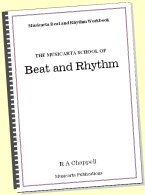
- Volume 1 -

12-BAR PIANO
STYLES WORKBOOK
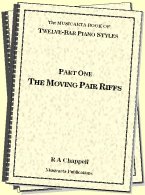
MUSICARTA MODES
WORKBOOK
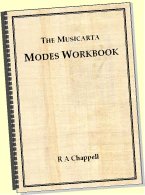
PIANO STYLE
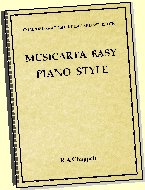
CANON PROJECT
video course
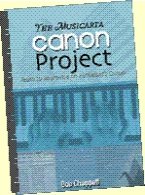
VARIATIONS
video course
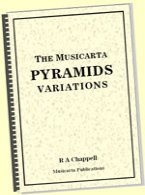

- Piano Solo -
video course

- Piano Solo -


YouTube playlists





 THE LOGO
THE LOGO
